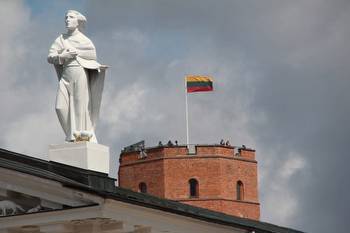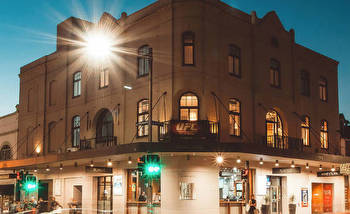Slot machine operator being investigated over cancer patient’s activity
The high street slot machine company Merkur is under investigation by the Gambling Commission over its alleged exploitation of a vulnerable customer, the Guardian understands, casting a shadow over its UK expansion drive.
The German-owned company operates Britain’s second-largest network of “adult gaming centres”, increasingly popular venues often open 24 hours a day, where customers can play £2 a spin slot machines.
The Guardian revealed in March that staff at Merkur’s Stockport branch looked on as Wendy Hughes, 64, who was being treated for lung cancer at the time, lost more than £2,000 over the course of 16 hours, spread across two days of play.
Staff reserved her favourite slot machine for her when, despite her physical frailty, she went out at midnight to fetch more money when her cash machine withdrawal limit reset.
The Gambling Commission, which can impose financial penalties on companies that break the terms of their gambling licence, is now understood to be investigating the case.
Merkur has blamed the incident on branch staff, saying that customer protection measures required by the regulator were “fully in place”.
In accounts filed at Companies House, Merkur reported revenues up 17% to £202m last year, as it reaped the benefit of a UK expansion project. It has opened 100 new venues since 2020.
Owned by Germany’s Gauselmann Group, Merkur nowhas 228 sites in the UK, making it the industry’s second-biggest player behind Admiral Slots, owned by the Austrian gaming firm Novomatic.
In its results, Merkur did not mention an investigation by the Gambling Commission; the regulator declined to comment on individual cases.
But in a longer-than-usual section of its results statement dedicated to regulatory risk and social responsibility, the company highlighted the potential damage to its business from “negative publicity”.
It said some in society and politics “perceive the gambling industry in a concerned light”, and that it would “provide and promote an environment in which customers play safely”.
Despite its rising revenues, investment in UK expansion has led to Merkur losing more than £9m over the past two years. The company said that, while it is still expanding, it will focus more on making new venues profitable, highlighting that new slot machine venues take at least a year to start making money.
The results, and the Gambling Commission’s investigation, come at a sensitive time for Merkur and the wider slot machine sector. The company’s plan to expand its presence on British high streets has sometimes been met with local opposition, including in Sheffield, where the company recently withdrew its application for a new premises in the face of objections from residents.
Despite announcing plans to crack down on the digital slot machines sector earlier this year by reducing maximum stakes to £5, or £2 for those aged 18 to 24, the government is expected to loosen regulations governing high street slots.
Under proposals outlined as part of the government’s white paper on gambling reform, venues are likely to be allowed to stock a higher proportion of £2-a-spin machines relative to the number with maximum stakes of £1.
Merkur did not respond to requests for comment. The Gambling Commission does not confirm or deny whether it is investigating individual operators.






























